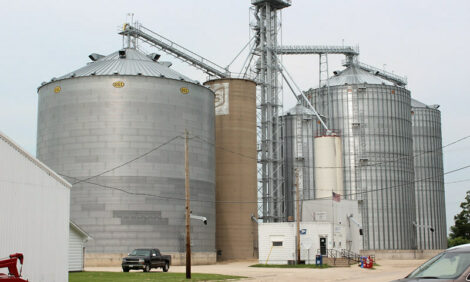



Revised Bluetongue Control Strategy Published
UK - Defra has today published a revised Bluetongue Disease Control Strategy for the UK.
Bluetongue has re-emerged this year in the Northern European countries affected during 2006 (Netherlands, Belgium, Luxembourg, parts of Western Germany and areas of Northern France). On the basis of these developments, there is a low but increased risk of spread to the UK from the affected areas.
Defra and the Devolved Governments have been working in partnership with industry to review Bluetongue control measures and share decision-making to agree this control strategy, which builds on the principles of responsibility and cost sharing.
With the presence of disease in Northern Europe, it is important that animal keepers are vigilant, alert to signs of disease and that they report any suspicion to Animal Health immediately.”
Chief Veterinary Officer, Debby Reynolds
The plans are set out in a Bluetongue Control Strategy document and, in line with other exotic diseases, includes rigorous measures to keep disease out of the UK and contain any outbreaks.
Bluetongue differs from other diseases in terms of its impact and the way it spreads, and the document reflects this with more proportionate measures taking account of the potential need to respond appropriately if it were to become widespread.
Chief Veterinary Officer, Debby Reynolds said:
“We have been reviewing our Bluetongue controls to ensure they address new risks proportionately and effectively, and reflects the emerging evidence from the outbreaks in Northern Europe in the last 12 months.
“We have worked in partnership with industry, sharing all available information on the disease with a working group of stakeholders to ensure that we reach a shared understanding of risks, roles, and responsibilities.
“The latest disease situation in Northern Europe highlights the importance of preparedness for this disease. While the risk to the U.K. is still low, it is clearly heightened. With the presence of disease in Northern Europe, it is important that animal keepers are vigilant, alert to signs of disease and that they report any suspicion to Animal Health immediately.”
The Industry working group said:
“The process of reviewing the control measures has, we believe, clearly demonstrated the need for government and industry to work in partnership on disease control strategy.
“We are convinced that as a result of this work we will have better arrangements and while there is still more to do, particularly in securing changes to the EU legislation, the UK livestock industry is happy to support this revised Control Strategy.”
Bluetongue has no public health implications and does not affect humans.
TheCattleSite News Desk


